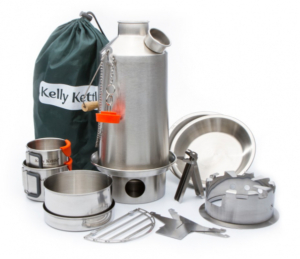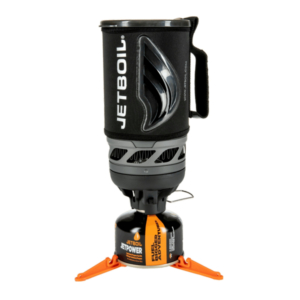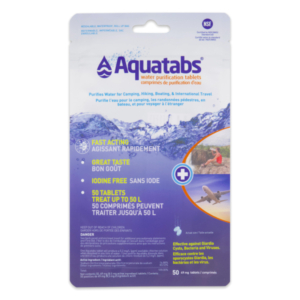Why Do We Boil Water In an Emergency?
The recommended duration for boiling water to ensure it is safe for drinking varies depending on factors such as altitude and the specific pathogens present in the water. However, as a general guideline:
- At Sea Level: Boil water vigorously for at least one minute. This duration is sufficient to kill most pathogens, including bacteria, viruses, and parasites, making the water safe to drink.
- At Higher Elevations: As altitude increases, water boils at lower temperatures due to reduced atmospheric pressure. Therefore, at altitudes above 6,562 feet (2,000 meters), it’s recommended to boil water for three minutes to ensure adequate disinfection.
It’s important to note that these guidelines provide a minimum duration for boiling water. In situations where water quality is highly suspect or during disease outbreaks, boiling water for longer periods may be advisable. Additionally, using a rolling boil (where bubbles are continuously breaking the surface) ensures effective disinfection throughout the process.
For specific recommendations tailored to your location or circumstances, consulting local health authorities or water quality experts is recommended.
Okay, But Why?
The Vital Importance of Boiling Water in Unsafe Drinking Environments
Access to clean drinking water is fundamental to human health and well-being. However, in many parts of the world, clean water isn’t readily available. In such environments, boiling water becomes an important step in ensuring safety and preventing waterborne diseases. Here, we delve into the reasons why boiling water is essential in places where water isn’t deemed safe to drink.
Elimination of Pathogens:
One of the primary reasons for boiling water is to eliminate harmful pathogens such as bacteria, viruses, and parasites. Boiling water at a rolling boil for at least one minute (or longer, depending on altitude) kills most microorganisms that can cause waterborne illnesses like cholera, typhoid fever, dysentery, and gastroenteritis. This simple yet effective method significantly reduces the risk of contracting these diseases from contaminated water sources.
Accessibility and Affordability:
Boiling water is a readily accessible and affordable method of water purification, especially in resource-limited settings where advanced filtration systems or chemical treatments may not be feasible or sustainable. It requires minimal equipment – just a heat source and a pot – making it accessible to communities even in remote or impoverished areas.
Neutralization of Chemical Contaminants:
In addition to microbial pathogens, boiling water can also help neutralize certain chemical contaminants. While boiling may not remove all chemical pollutants, it can effectively reduce concentrations of some substances like heavy metals (e.g., lead, arsenic) and volatile organic compounds (VOCs: a group of organic chemicals that easily evaporate into the air. These compounds contain carbon and are found in a wide range of products and substances, including fuels, solvents, cleaning agents, paints, adhesives, and pesticides. VOCs can be emitted as gases from these products, contributing to indoor and outdoor air pollution).
Although not a comprehensive solution for chemical contamination, boiling can offer a degree of protection against certain toxins present in water sources.
Reliability in Emergency Situations:
During natural disasters, emergencies, or infrastructure failures, access to safe drinking water may be compromised. In such situations, boiling water becomes a critical measure to ensure survival and prevent outbreaks of waterborne diseases. It provides a reliable interim solution until access to clean water is restored or alternative purification methods can be implemented.
Preservation of Health and Life:
The consequences of consuming contaminated water can be severe to us all. Waterborne diseases can lead to dehydration, malnutrition, organ damage, and even death if left untreated. Boiling water serves as a vital barrier against these health risks, safeguarding the well-being and lives of individuals who rely on it for hydration and sanitation.
Empowerment through Education:
Promoting the practice of boiling water empowers communities to take control of their health and safety. Through education initiatives and awareness campaigns, individuals can learn the importance of boiling water and how to properly implement this purification method. By empowering people with knowledge and resources, we can foster sustainable practices that protect communities from waterborne illnesses in the long term.
In conclusion, boiling water is a simple yet indispensable practice in environments where access to clean drinking water is compromised. This could be due to unsafe water conditions for the area as a whole, or an emergency water alert. By effectively eliminating pathogens, reducing chemical contaminants, and providing a reliable means of purification, boiling water plays a crucial role in safeguarding public health and preventing waterborne diseases. Empowering communities with the knowledge and resources to boil water effectively can make a significant difference in ensuring access to safe drinking water for all.
Aids We Offer To Assist in Water Purification:
Kelly Kettle & Jet Boil – your on the go water boiling options


Aquatabs – to aid in water purification

Water Filtration & Storage systems






